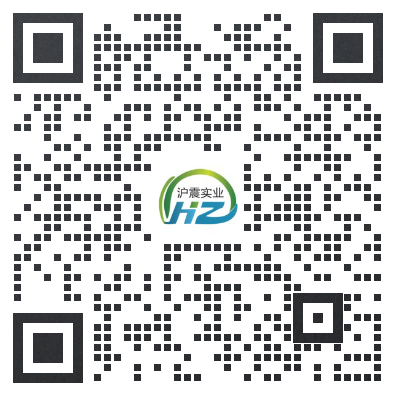
FITC标记的氨基末端激酶2抗体
产品名称: FITC标记的氨基末端激酶2抗体
英文名称: Anti-JNK2/FITC
产品编号: HZ-2900R-FITC
产品价格: null
产品产地: 中国/上海
品牌商标: HZbscience
更新时间: 2023-08-17T10:24:20
使用范围: IF=1:50-200
上海沪震实业有限公司
- 联系人 : 鲍丽雯
- 地址 : 上海市闵行区闵北路88弄1-30号第22幢AQ136室
- 邮编 : 200612
- 所在区域 : 上海
- 电话 : 139****0749 点击查看
- 传真 : 点击查看
- 邮箱 : www.shzbio.net
- 二维码 : 点击查看
Rabbit Anti-JNK2/FITC Conjugated antibody
FITC标记的氨基末端激酶2抗体
| 英文名称 | Anti-JNK2/FITC |
| 中文名称 | FITC标记的氨基末端激酶2抗体 |
| 别 名 | Mapk9; C Jun kinase 2; C Jun N terminal kinase 2; JNK 2; JNK 55; JNK2 alpha; JNK2 beta; JNK2alpha; JNK2B; JNK2beta; JNK55; Jun kinase; MAP kinase 9; MAPK 9; Mitogen activated protein kinase 9; P54 alpha; P54aSAPK; PRKM9; SAPK alpha; SAPK1a; SAPKa; Stress activated protein kinase JNK2; MK09_HUMAN. |
| 规格价格 | 100ul/2980元 购买 大包装/询价 |
| 说 明 书 | 100ul |
| 研究领域 | 肿瘤 免疫学 信号转导 转录调节因子 糖尿病 |
| 抗体来源 | Rabbit |
| 克隆类型 | Polyclonal |
| 交叉反应 | Human, Mouse, Rat, Dog, Pig, Cow, Horse, Rabbit, |
| 产品应用 | IF=1:50-200 not yet tested in other applications. optimal dilutions/concentrations should be determined by the end user. |
| 分 子 量 | 48kDa |
| 性 状 | Lyophilized or Liquid |
| 浓 度 | 1mg/ml |
| 免 疫 原 | KLH conjugated synthetic peptide derived from human JNK2 |
| 亚 型 | IgG |
| 纯化方法 | affinity purified by Protein A |
| 储 存 液 | 0.01M TBS(pH7.4) with 1% BSA, 0.03% Proclin300 and 50% Glycerol. |
| 保存条件 | Store at -20 °C for one year. Avoid repeated freeze/thaw cycles. The lyophilized antibody is stable at room temperature for at least one month and for greater than a year when kept at -20°C. When reconstituted in sterile pH 7.4 0.01M PBS or diluent of antibody the antibody is stable for at least two weeks at 2-4 °C. |
| 产品介绍 | background: The protein encoded by this gene is a member of the MAP kinase family. MAP kinases act as an integration point for multiple biochemical signals, and are involved in a wide variety of cellular processes such as proliferation, differentiation, transcription regulation and development. This kinase targets specific transcription factors, and thus mediates immediate-early gene expression in response to various cell stimuli. It is most closely related to MAPK8, both of which are involved in UV radiation induced apoptosis, thought to be related to the cytochrome c-mediated cell death pathway. This gene and MAPK8 are also known as c-Jun N-terminal kinases. This kinase blocks the ubiquitination of tumor suppressor p53, and thus it increases the stability of p53 in nonstressed cells. Studies of this gene's mouse counterpart suggest a key role in T-cell differentiation. Several alternatively spliced transcript variants encoding distinct isoforms have been reported. [provided by RefSeq, Sep 2008]. Function: Serine/threonine-protein kinase involved in various processes such as cell proliferation, differentiation, migration, transformation and programmed cell death. Extracellular stimuli such as proinflammatory cytokines or physical stress stimulate the stress-activated protein kinase/c-Jun N-terminal kinase (SAP/JNK) signaling pathway. In this cascade, two dual specificity kinases MAP2K4/MKK4 and MAP2K7/MKK7 phosphorylate and activate MAPK9/JNK2. In turn, MAPK9/JNK2 phosphorylates a number of transcription factors, primarily components of AP-1 such as JUN and ATF2 and thus regulates AP-1 transcriptional activity. In response to oxidative or ribotoxic stresses, inhibits rRNA synthesis by phosphorylating and inactivating the RNA polymerase I-specific transcription initiation factor RRN3. Promotes stressed cell apoptosis by phosphorylating key regulatory factors including TP53 and Yes-associates protein YAP1. In T-cells, MAPK8 and MAPK9 are required for polarized differentiation of T-helper cells into Th1 cells. Upon T-cell receptor (TCR) stimulation, is activated by CARMA1, BCL10, MAP2K7 and MAP3K7/TAK1 to regulate JUN protein levels. Plays an important role in the osmotic stress-induced epithelial tight-junctions disruption. When activated, promotes beta-catenin/CTNNB1 degradation and inhibits the canonical Wnt signaling pathway. Participates also in neurite growth in spiral ganglion neurons. JNK2 isoforms display different binding patterns: alpha-1 and alpha-2 preferentially bind to c-Jun, whereas beta-1 and beta-2 bind to ATF2. However, there is no correlation between binding and phosphorylation, which is achieved at about the same efficiency by all isoforms. JUNB is not a substrate for JNK2 alpha-2, and JUND binds only weakly to it. Subunit: Interacts with MECOM and DCLK2. Binds to at least four scaffolding proteins, MAPK8IP1/JIP-1, MAPK8IP2/JIP-2, MAPK8IP3/JIP-3/JSAP1 and SPAG9/MAPK8IP4/JIP-4. These proteins also bind other components of the JNK signaling pathway. Interacts with NFATC4. Interacts with ATF7; the interaction does not phosphorylate ATF7 but acts as a docking site for ATF7-associated partners such as JUN. Interacts with BCL10. Interacts with CTNNB1 and GSK3B. Subcellular Location: Cytoplasm. Nucleus. Post-translational modifications: Dually phosphorylated on Thr-183 and Tyr-185 by MAP2K7 and MAP2K4, which activates the enzyme. Autophosphorylated in vitro. Similarity: Belongs to the protein kinase superfamily. CMGC Ser/Thr protein kinase family. MAP kinase subfamily. Contains 1 protein kinase domain. Database links: Entrez Gene: 5601 Human Entrez Gene: 26420 Mouse Entrez Gene: 50658 Rat Omim: 602896 Human SwissProt: P45984 Human SwissProt: Q9WTU6 Mouse SwissProt: P49186 Rat Unigene: 484371 Human Unigene: 68933 Mouse Unigene: 9910 Rat Important Note: This product as supplied is intended for research use only, not for use in human, therapeutic or diagnostic applications |
由该基因编码的蛋白是MAP激酶家族的成员。MAP激酶作为多个生化信号的整合点,参与多种细胞过程,如增殖、分化、转录调控和发育。该激酶靶向特异性转录因子,从而介导响应于各种细胞刺激的即刻早期基因表达。它与MAPK8密切相关,两者都参与紫外线辐射诱导的细胞凋亡,认为与细胞色素c介导的细胞死亡途径有关。这种基因和MAPK8也被称为c-Jun N-末端激酶。这种激酶阻断了肿瘤抑制基因p53的泛素化,从而增加了p53在非应激细胞中的稳定性。该基因的小鼠配对研究提示T细胞分化起关键作用。已经报道了几种编码不同亚型的剪接转录变体。[ RefSeq,SEP 2008 ]提供。
